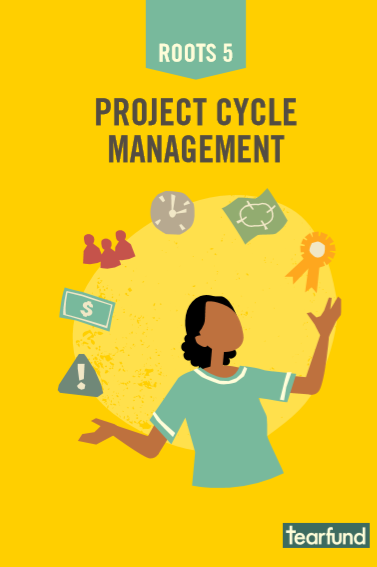Project management matters
When starting to write this blog I did a quick google search for why project management matters in development work. Lots of the answers referred to aspects of good project management, for example ensuring that risks are mitigated, encouraging teamwork, staying on budget, and mapping out schedules and deadlines.
For me, these are all important aspects of good project management, but they don’t get to the bottom of why it really matters. The purpose of project management is to deliver change; to improve people’s lives in some way. Most international development and humanitarian interventions happen through a series of projects and programmes. Without these interventions the changes our organisations want to influence in communities simply can’t happen.
All too often organisations approach a situation thinking ‘what are we going to do?’ A much more important question is ‘what is the change we want to see?’ A structured approach to project management helps to get these questions in the right order.
There are plenty of project management approaches, tools and methodologies out there, but not all deal well with the complexities of the development and humanitarian worlds, and the wide range of stakeholders with an interest in influencing changes in these contexts.
Tearfund produced its Roots 5 Guide on Project Management in 2003, mainly to support their partners and other small organisations delivering development projects. Since then the development and humanitarian community has continued to improve its approach to project management, and many lessons have been learnt. I recently worked with Tearfund to rewrite the updated Roots 5 guide, which captures the latest tools and thinking around project management. It also includes a project scenario to help readers see what the tools and principles look like applied in practice.
“Our big hope for the guide is that it helps to improve how projects around the world are designed and implemented and learnt from, so that they achieve maximum impact to reduce poverty and improve lives.”
You can download the new guide, Roots 5 on Project Cycle Management, for free here. You can buy a print copy of the guide here.

Another recent release is the updated Project DPro guide (Project management for development professionals, formerly PMD Pro.) When I have worked with organisations to support them to improve their project management systems and practices I have generally found PMD Pro to be a really useful starting point, and so I’m quite excited about this updated version.
PMD pro was launched in 2010 as a response to requests from NGOs for project management learning materials, and a recognition that the ways of working on projects across the sectors were inadequate and could learn a lot from project management professional practice in other sectors. A new NGO (PM4NGOs) was established to manage and act as the guardian for PMD Pro and a certification system was developed alongside APMG (Association of Project Managers Group, a global certification body that manages qualification schemes for professionals.)
There are now over 22,700 certified PMD Pro professionals – with 75% based in developing countries. Many organisations are using the methodology as the basis for their own project management systems. The recent update to the guide expands on the original, and captures the way the sector has evolved over the last 10 years. It can be downloaded for free, in several different languages, here.
Project management can be a bit daunting if you are just starting out, so consider a course to help you get going. I’m biased towards Bond’s Project DPro course as I’m currently the main associate trainer. More details can be found here.

